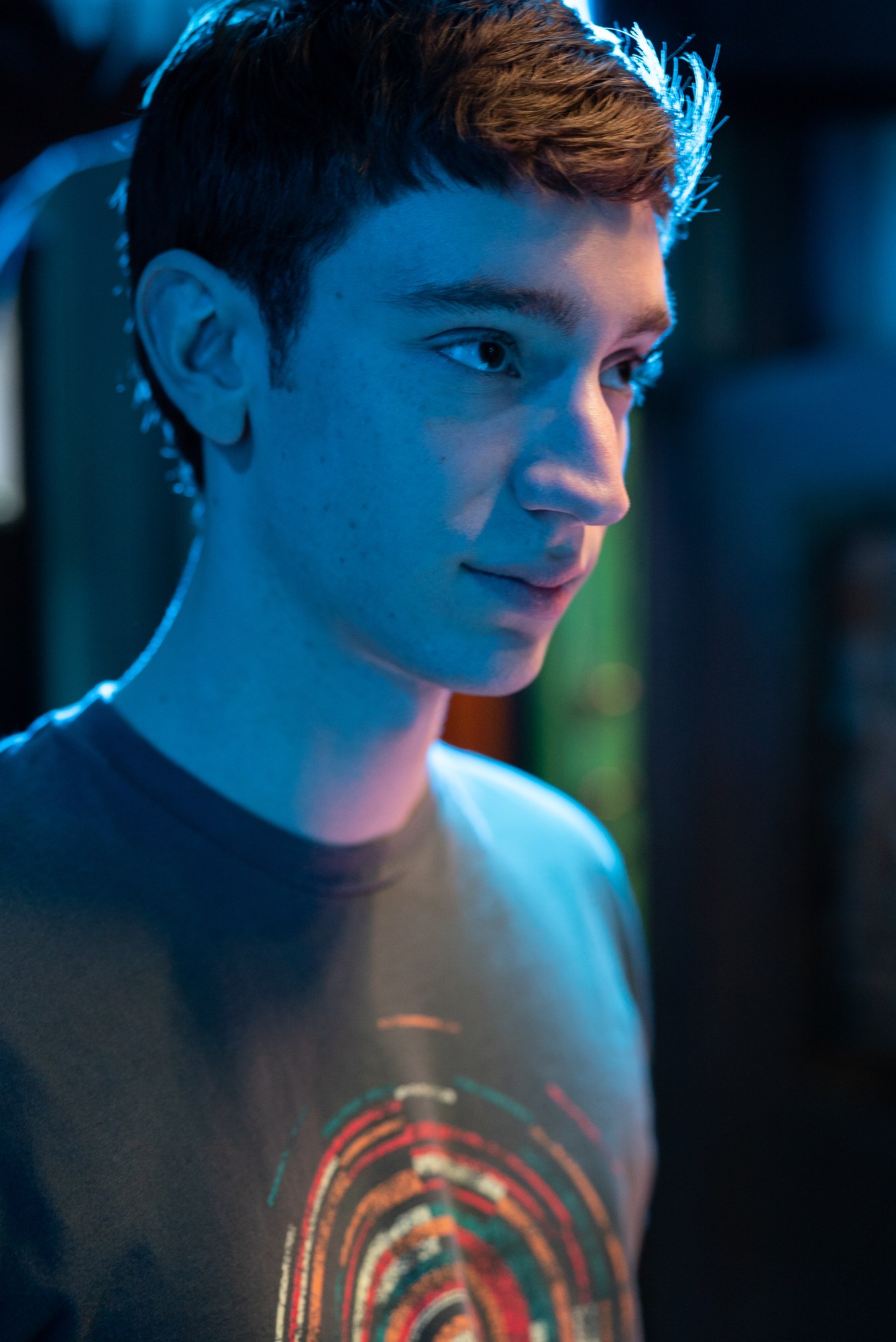In Never Rarely Sometimes Always, the new film by Beach Rats director Eliza Hittman, 16-year-old Autumn (Sidney Flannigan) heads to New York City for an abortion with a few hundred dollars swiped from the register of her grocery store cashier job. Abortion law in Pennsylvania restricts minors from undergoing the procedure without a parent’s consent, and the employees at Autumn’s small-town, pro-life women’s clinic are unhelpful and misleading. Together with her cousin, Skylar (Talia Ryder), Autumn takes the first bus into the city, but the two girls are relatively clueless about what their journey will require and what it’ll cost them.
Jasper, a slightly-older hip city kid played by 22-year-old Québécois newcomer Théodore Pellerin, first encounters the girls on the bus. He awkwardly hits on Skylar, thinking an invitation to a show downtown will strike the girls’ interest, but they aren’t impressed. They’ve got bigger things on their minds. When their trip is unexpectedly extended and the money runs out, however, Skylar texts Jasper in hopes of wrangling the extra cash needed for a ticket back home. What follows is one of the film’s most memorable sequences: a game of bowling, a karaoke booth session and a dude’s desperate attempt to get a girl alone, all with the fresh trauma of Autumn’s abortion hanging in the air.
Pellerin’s got a knack for these sorts of messy roles. He’s performed his share of brooding, erratic teens in Canadian dramas like Genesis and Family First. And last year, he broke out in a big way with the Kirsten Dunst-led series, On Becoming a God in Central Florida, where he plays a hack pyramid scheme “entrepreneur” whose over-the-top self confidence masks a deep inferiority complex. But his part in Never Sometimes Rarely Always might be his most nuanced one to date. At times, Pellerin’s Jasper recalls Jesse Eisenberg in The Social Network, a young guy trying (and failing) to put on the air of someone much older and cooler and who’s ultimately got something slimy and desperate at the core of his intentions. Pellerin isn’t bad-boy heart throb material, nor is he the sweet boy-next-door type, but he plays these roles like a natural with a twist.
Never Rarely Sometimes Always’ theatrical run was cut criminally short as part of the many COVID-19 related upheavals in the entertainment industry and beyond. As a result, the indie hit was released to streaming services on April 3. In honor of the film’s release, i-D caught up with Pellerin to talk through his career and his place in the film.
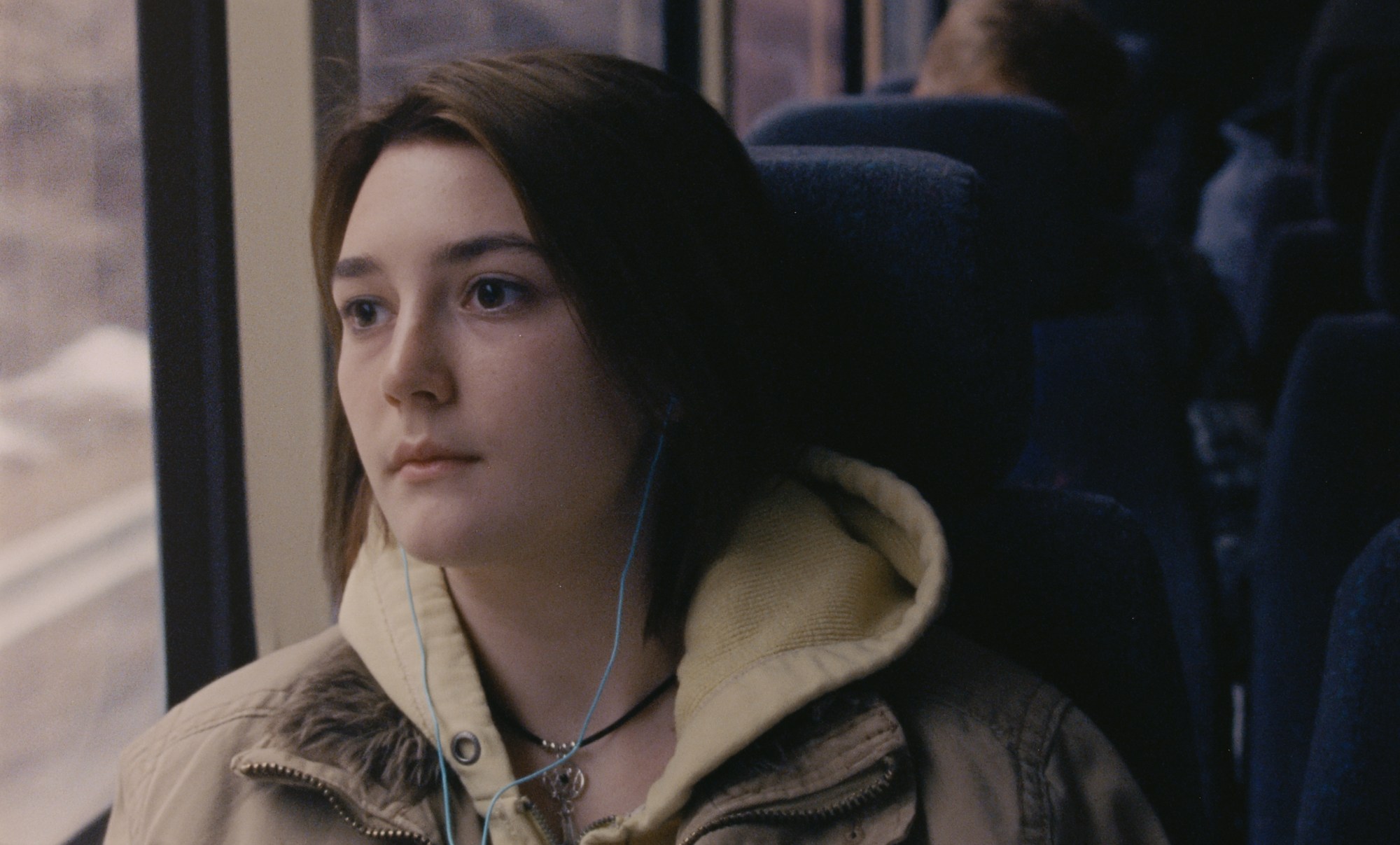
What’s quarantine been like for you?
When I’m not working, I stay home and I don’t actually have a routine. So, for me this is all very natural, though I can’t imagine what it’s like for other people. I’ve just been reading, watching tv, taking walks…
Any movies or books in particular?
I’ve been reading Sally Rooney’s Conversations with Friends, which is very fun and easy. And I feel like my soul is deeply affected by this, like it’s not good for my happiness, but I’ve been watching Tiger King like everyone else. It’s terrifying to me and I feel very heavy after it, so I can only watch like an episode a day.
How did you get into acting yourself?
When I was 12 through 17, I went to a high school, which was very small and everybody there was focused on either acting or production in theatre. It wasn’t a private school, or a school dedicated to forming actors. It was more just everyone doing theatre throughout their teenage years just cause. I fell in love with acting pretty early on in my time there, maybe because I felt like I really belonged to a group of people, like I was part of something invigorating that everyone was really excited about. I also loved my teacher and was one of those kids that really wanted her approval.
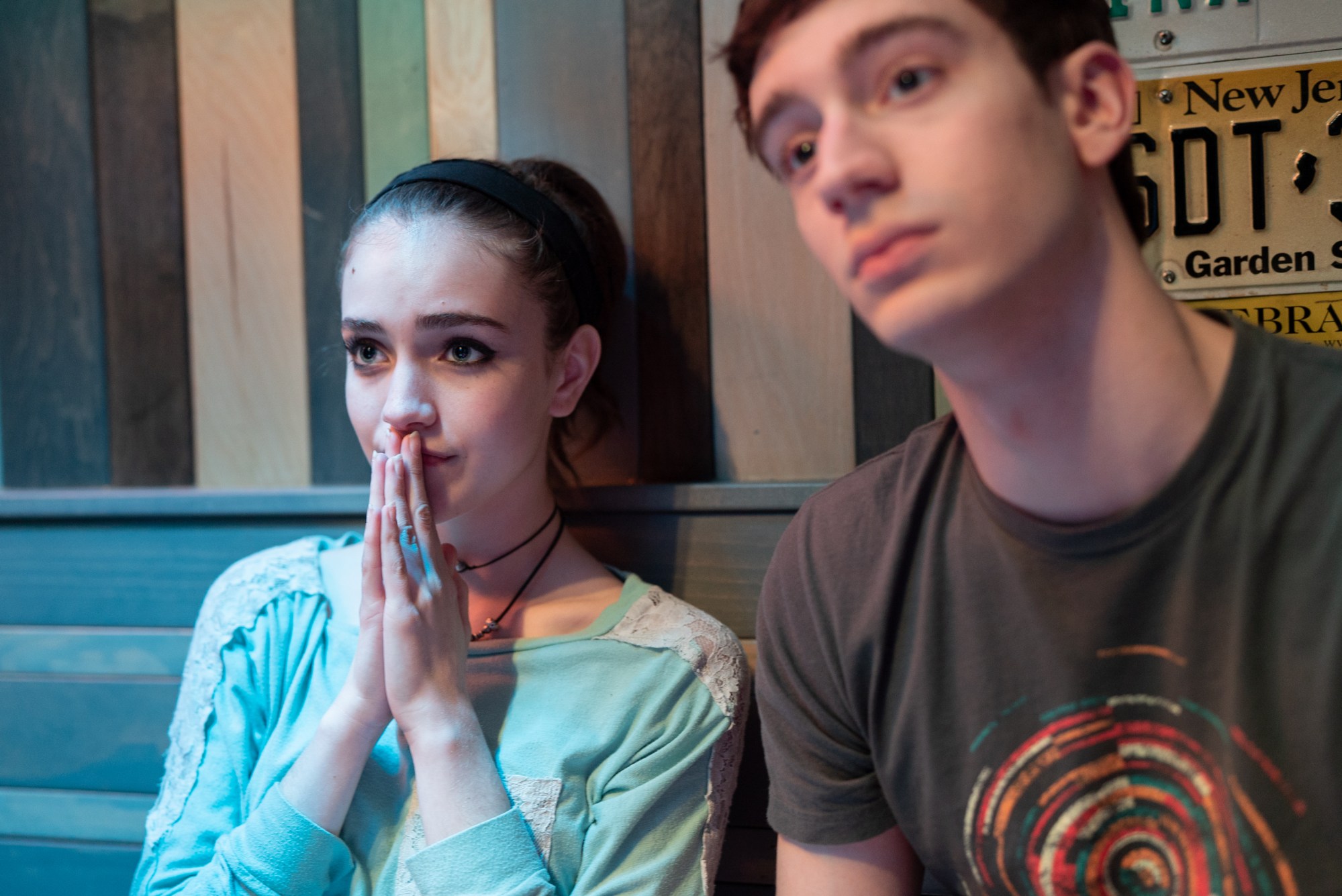
And so from there you decided you wanted to do it for a living?
I wasn’t one of those kids who went to the theatre and was like, amazed and struck by it and then wanted to do that. It wasn’t like that with film either. It was more that I simply started enjoying doing it, and got a taste for the pleasure of it. I also grew up with the stage through my mother, who is a choreographer. I used to go on tour with her and her dancers, so I always had a fascination for the stage and the environment of rehearsals and dancers getting ready and feeling stressed. So, being there and seeing them perform and seeing people being made by it really stuck with me. But when I started acting, that fascination became something more, and it became more real for me that it was something I needed to pursue. I was around 16 when it became clear that I was really in love with actors, and I wanted to understand them and how they were breathing through a character and giving life to something that was only on paper.
Did you have any particular actors or performers that you really admired at the time, or that influenced you?
Mostly French-Canadian actors because that’s who I really grew up with, but when I was a teenager I started looking more to international cinema so I started falling in love with actors like Tilda Swinton, Cate Blanchett, Daniel-Day Lewis, Gerard Depardieu and Juliette Binoche, of course in Blue [from Krzysztof Kieslowski’s Three Colors trilogy]. And even today those actors still mean a lot to me.
By the way, I’ve been speaking French for months and months now, so I hope my English doesn’t sound too rough…
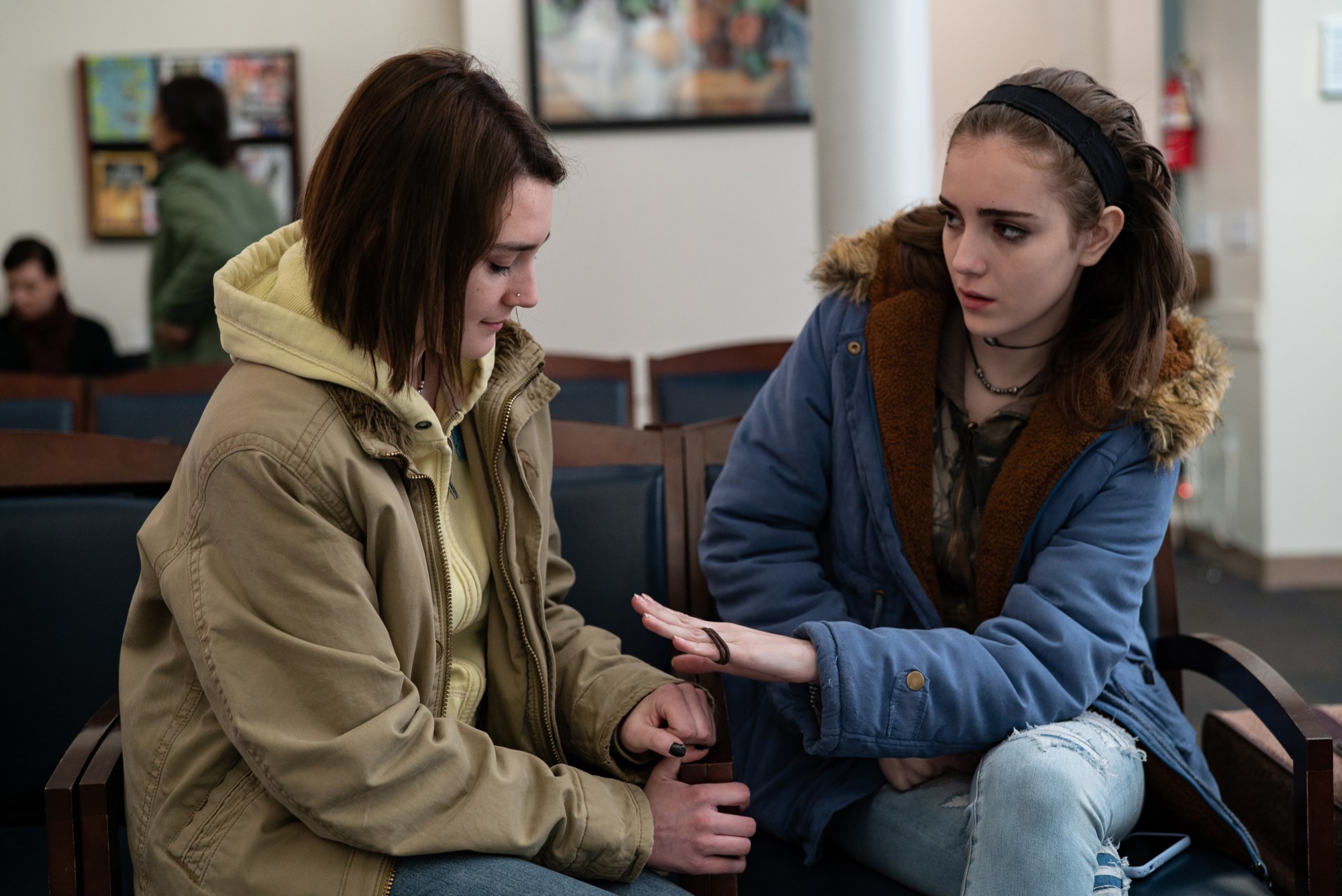
I didn’t even notice. It’s funny that you point this out because you’ve been playing these really quintessentially American characters even though you’re French-Canadian.
It’s interesting to act in the US because there’s a distance I don’t have in Quebec, a distance from the culture and the language. I have to work to reach the words and give as much sense to the words as in French. I need to work to give an interior response to them. It sometimes becomes like a sociological study, but that’s always the case even when you’re playing someone from your own town.
Do you find that certain types of roles attract you? I ask this because a lot of your characters in the films and shows I’ve seen you in are very neurotic and messy, and it’s not necessarily messy in a flattering way, but there’s something very authentic and real to that messiness.
I think I am attracted to characters that are stuck in a crisis, or entangled in themselves. They don’t have to be over-the-top or clearly in a major crisis, but like, people that in their routine and everyday lives are frustrated and out-of-whack in less obvious ways. I don’t know why I get those parts, maybe because I’m cynical. Maybe because I don’t look like a lot of people — because I have a strange physique. I’m drawn to characters like that, even in literature and the books I read… Like [Dostoevsky’s] The Idiot was huge for me. I love [J.D.] Salinger. He also talked a lot about actors and the dilemma between the desire to act and the sort of discomfort they have with putting themselves out there.
Tell me about how you got involved with Never Rarely Sometimes Always.
For me it was like any audition process. I made a tape when I was in New Orleans shooting the first season of On Becoming a God in Central Florida, then Skyped with Eliza [Hittman], who I was already a huge fan of. I had seen Beach Rats and It Felt Like Love, and I was very much intimidated. The script was just one of the best things I had read in my life, like it wasn’t just a script, it felt like a piece of literature. The script was so clear and you could feel the heavy silence that you have throughout the film. Then I found out I got the part, and it was sort of scary because initially I didn’t quite understand why my character, Jasper, is the way he is.
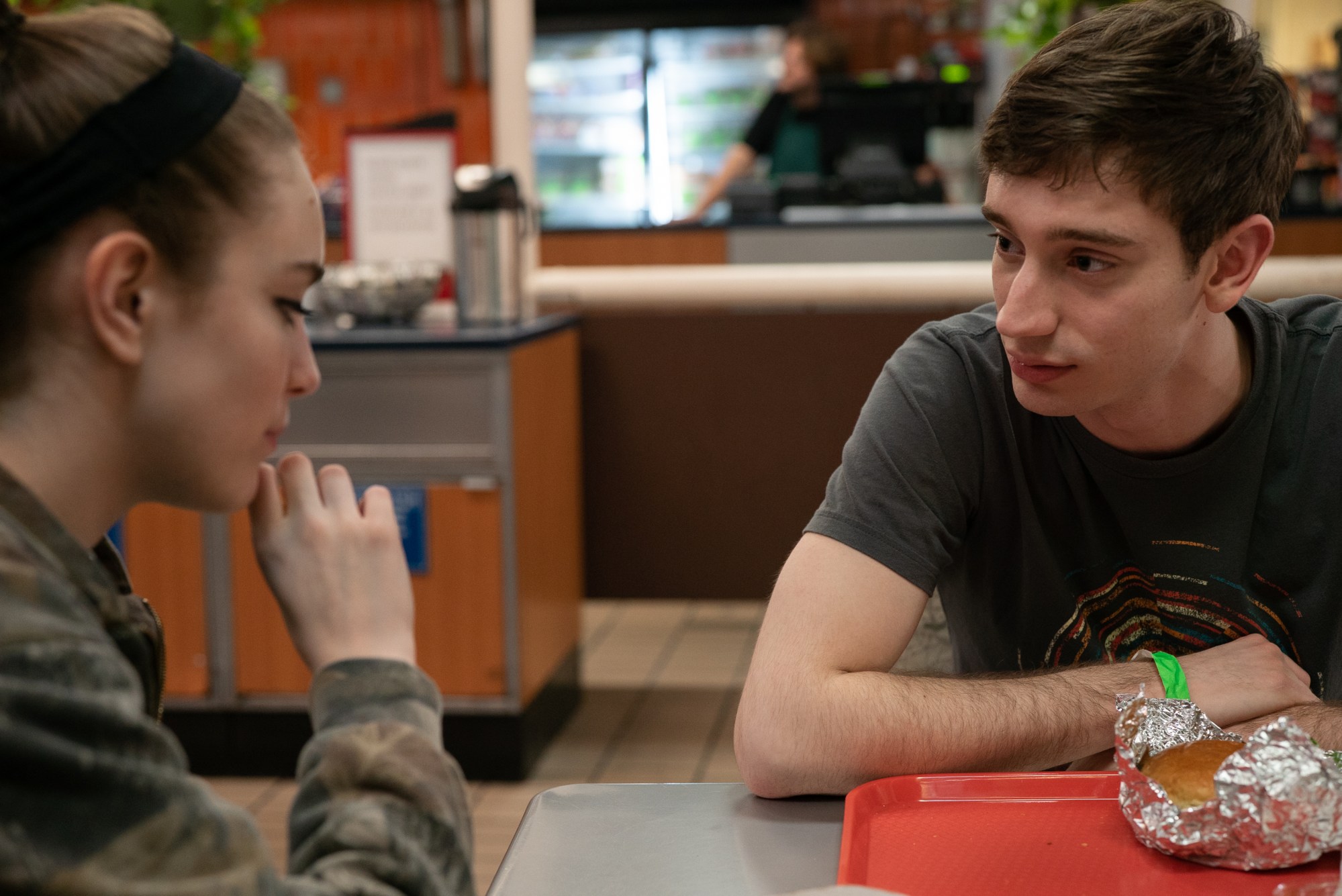
Jasper is one of the bad guys! But what makes him “bad” per se is hard to pin down.
How was [Jasper] not understanding the signals of like, these girls not wanting him to keep on talking and going? It was so weird for me. Every masculine presence in the film puts pressure on the girls. Like there’s this dominating toxic sexual presence at every end of the movie. But Jasper sort of feels the most dangerous, because he’s younger, he’s sort of nice. It’s scary because it’s not as clear, and that’s usually what sexual abuse and sexual harassment is like. You often don’t even fully understand that you’re experiencing it immediately or at first, or even while it’s happening. Sometimes it takes a while before fully realizing “wow, this person wants something from me and their presence is really disturbing.”
Other actors your age have performed similarly sleazy young guys, but I always find them depicted in a strangely romantic light. But with Jasper, he’s so clearly menacing, and that’s refreshing to me.
It’s so weird because in some other interviews I did with male journalists, they were like “[Jasper’s] so charming and nice!” and they weren’t really seeing how much of a dangerous or scary presence he was. And it had me wondering, like, what did I do to make them see that? I think some people see what they want to see, though it was very strange for me.
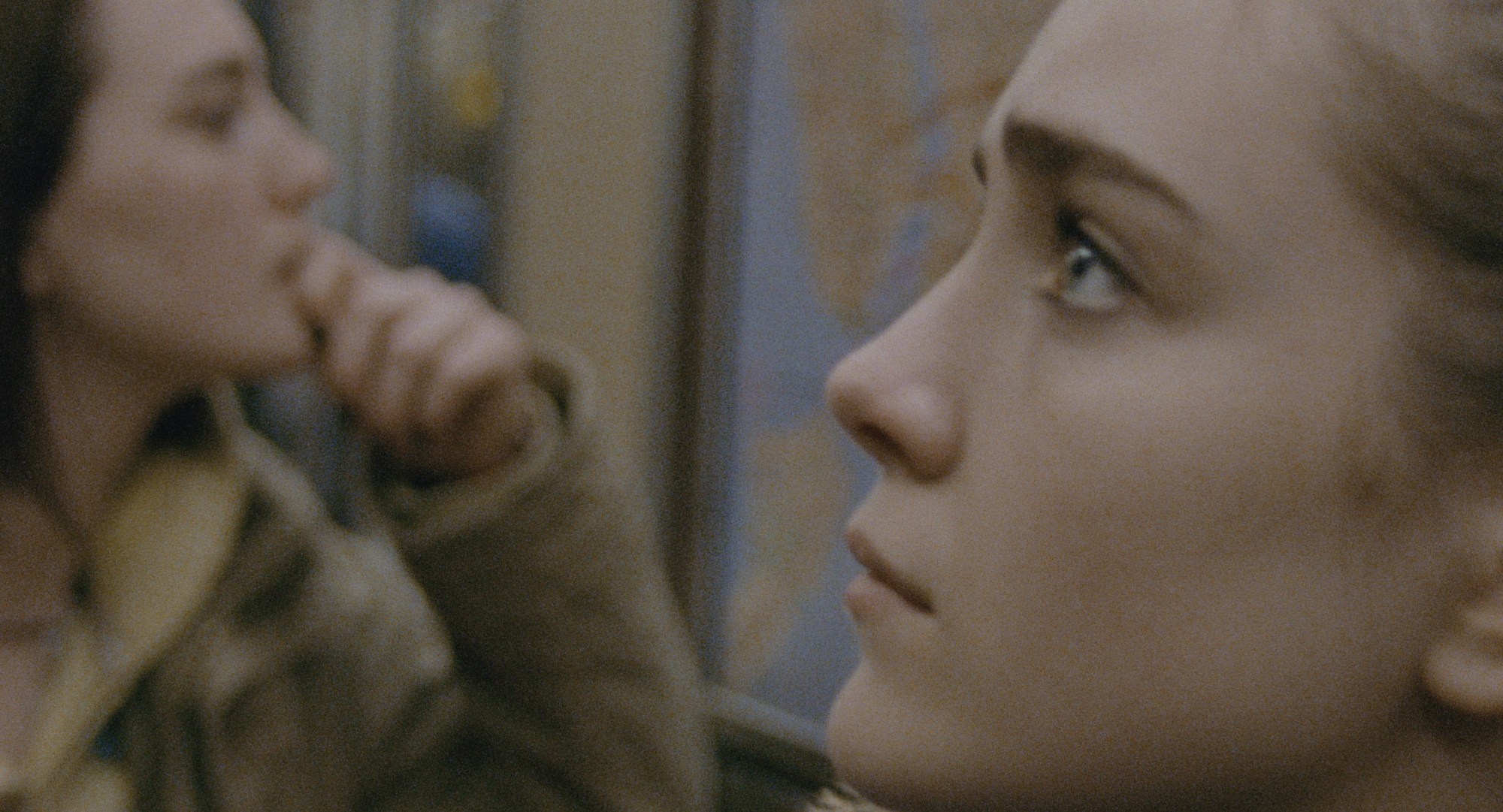
How did Never Rarely Sometimes Always and playing Jasper get you to think about your own relationship, and your generation’s relationship to masculinity and sexuality?
I know my generation has a much broader understanding of sexuality, and there are more conversations about the rights of women and queer people than ever before, but at the same time everything that’s happening in the US especially, is so backwards, with access to abortions and reproductive care still being very difficult. It sort of feels like two steps forward, one step back. For me personally, I grew up very close to my mom, and I was never really that concerned about my presence as a man, which I think was a privilege for me. So, it was necessary for me to see a character like [Jasper]. Trying to understand him and bring him closer to me was hard, but what I decided for him was that he’s the sort of guy who is driven by loneliness and insecurity. That’s not the case for every guy who is imposing and refusing to see signals, but that’s what I found for Jasper. He’s trying to find a connection and he’s also attracted to [these girls] and he wants to follow that impulse, but he has no idea what he’s doing. I’m lucky because the character was already so well-defined in the script, but the hard part for me was just diving into it and being this guy that I really didn’t like as a person!
What’s next for you?
There’s My Salinger Year, this movie with Sigourney Weaver and Margaret Qualley directed by French-Canadian director Philippe Falardeau. That’s coming out sometime this year, I hope. Also Mayday by Karen Cinorre, which is her first feature film. Then I have a Netflix film, There’s Someone Inside Your House, which is a teen serial killer thriller also supposed to come out later in the year. And of course, Never Rarely Sometimes Always, which will be available soon. It’s truly one of the greatest movie-making experiences I’ve ever had. I couldn’t be more proud.
